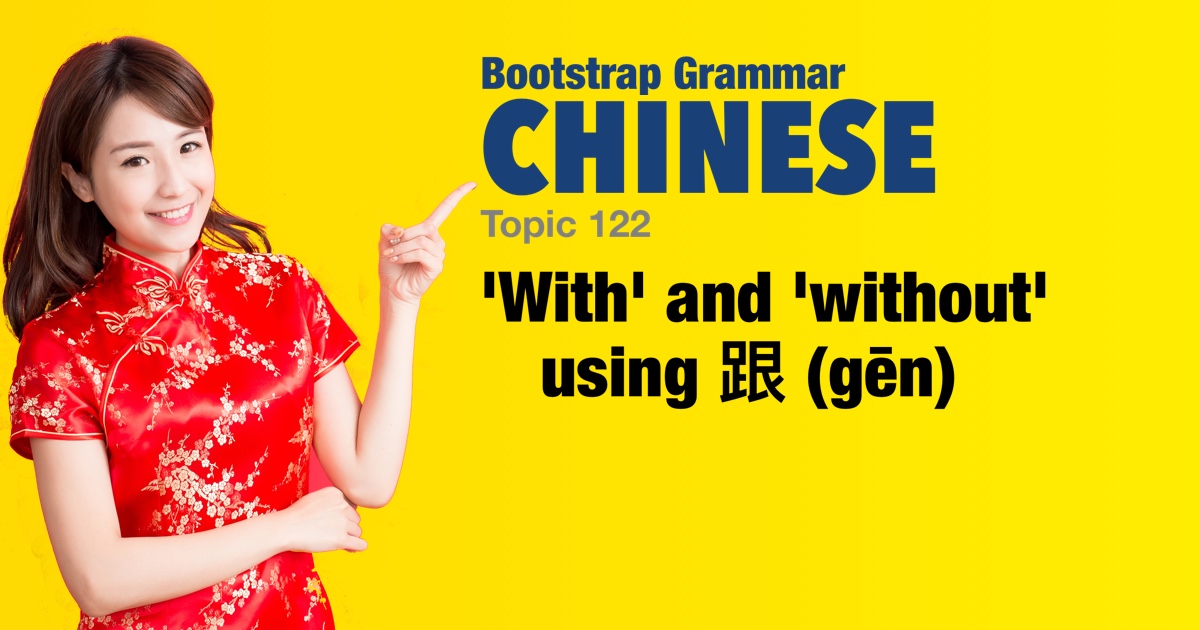Chinese grammar - 'With' and 'without' using 跟 (gēn) |
|||
|
|||
The particle 跟 (gēn) is used to say 'with' adverbally in Chinese. — It is often accompanied by the word 一起 (yìqǐ), which means 'together'. Adding the negative particle 不 gives 'without' : 不跟 (bùgēn) Note that 有 and 没有 should be used when 'with' and 'without' refer to possession. |
| Examples: | |
|
他跟我一起去。
tā gēn wǒ yìqǐ qù. He goes with together me. |
|
|
她跟朋友吃饭。
tā gēn péngyǒu chīfàn. She eats with her friends. |
|
|
我跟老师学习。
wǒ gēn lǎoshī xuéxí. I study with the teacher. |
|
|
我和他是好朋友。
wǒ hé tā shì hǎo péngyǒu. I am good friends with him. |
|
|
她不跟朋友说话。
tā bù gēn péngyǒu shuōhuà. She doesn't talk with her friends. |
|
|
你不跟家人住一起。
nǐ bù gēn jiārén zhù yìqǐ. You don't live with your family. |
|
|
他不跟同事工作。
tā bù gēn tóngshì gōngzuò. He doesn't work with his colleagues.
|
|
|
我跟老师学习。
wǒ gēn lǎoshī xuéxí. I study with the teacher. |
|
|
请跟我来。
qǐng gēn wǒ lái. Please come with me. |
|
|
孩子跟妈妈走。
háizi gēn māma zǒu. The child goes with (follows) (its) mother. |
|
|
他跟我讨论问题。
tā gēn wǒ tǎolùn wèntí. He discusses the issue with me. |
|
|
我们跟朋友一起旅行。
wǒmen gēn péngyǒu yìqǐ lǚxíng. We travel with friends. |
|
|
你跟谁一起工作?
nǐ gēn shéi yìqǐ gōngzuò. Who do you work with? |
|
|
如果妹妹在看电影,就陪她一起看。
rúguǒ mèimei zài kàn diànyǐng,#jiù péi tā yìqǐ kàn. If younger sister is watching a movie, then watch it together with her.
|
|
|
这跟那不一样。
zhè gēn nà bù yíyàng. This is not the same as that.
|
|
|
不要跟她走!
búyào gēn tā zǒu! Do not go with her! |
|
 |
|



 This is common idiomatic usage of
This is common idiomatic usage of 